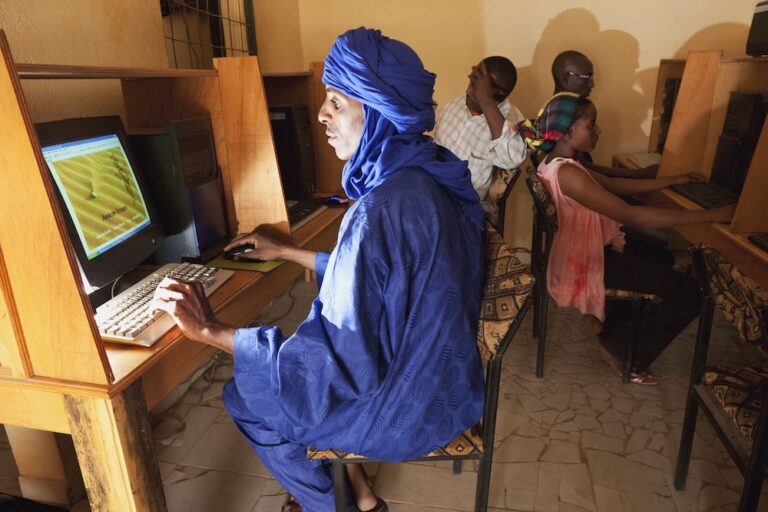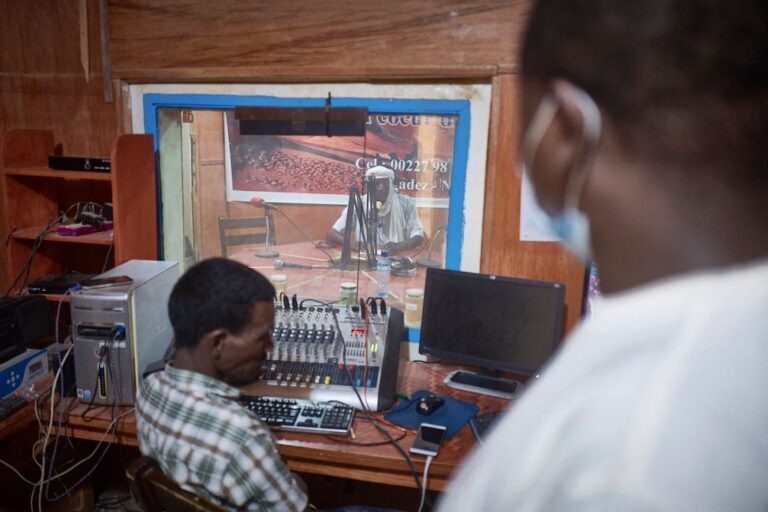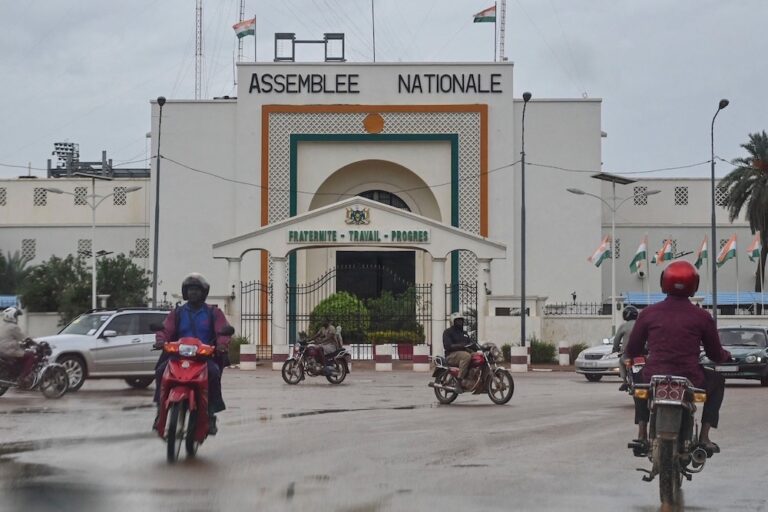Authorities in Niger recently arrested four journalists within five days. Niamey Press Club president Boubacar Diallo told Reporters Without Borders that the good image that Niger had acquired internationally in the past three years has been ruined by the government’s actions.
Reporters Without Borders is concerned about the tough line that Niger’s authorities have begun taking with journalists, arresting four in Niamey in the past five days.
Zakari Adamou, the host of a talk show on privately-owned Canal 3 TV, and Ousmane Dan Badji, the editor of the newspaper L’Union, who was a guest on Adamou’s show, were summoned for questioning by the police yesterday afternoon [27 January 2014] and were still in police custody as this press release was being drafted today [28 January 2014].
They were due to be taken before a prosecutor on charges of “media offences” and “defamatory statements” during a televised discussion on 14 January. A civil society representative who took part in the same discussion is also being held.
Their arrests follow those of two other journalists. One is Soumana Idrissa Maïga, the editor of the privately-owned daily L’Enquêteur, who was arrested on 23 January on charges of “plotting against state security” and “abetting wrongdoers” in connection with an article in his newspaper’s 17 January issue.
The other is Abdoulaye Maman, the host of a Hausa-language talk show, Gaskya, on Bonferey TV, who was arrested on 25 January on a “media offences” charge in connection with comments he made on the air.
The prosecutor’s office authorized their release yesterday [27 January 2014], but their lawyers have yet to receive any notification that the charges against them have been fully dropped.
Reporters Without Borders calls on the authorities to drop all charges against the four journalists and to release the two still being held.
Niamey Press Club president Boubacar Diallo gave Reporters Without Borders his analysis in the following short interview:
What is your reaction to all the arrests of journalists in the past few days?
Boubacar Diallo: We are surprised and very shocked by these arrests. This is a mess. The good image that Niger had acquired internationally in the past three years has been ruined in two days by the government’s actions.
Why do you think the authorities have taken a tougher line with the media in the past few days?
The government has its back to the wall because of various crises and so it is turning on journalists who express views and organize debates it doesn’t like. Also, some journalists don’t know how to consolidate our democratic gains, and that upsets government leaders. This sudden change of behaviour is a problem because the penal code is being used with these journalists, not the press law.
As president of the Niamey Press Club, what are you calling for?
We want the authorities to respect the laws that govern the media in Niger. A journalist can be called to account for his actions, but this should be in accordance with the press law [which means they should not be taken into police custody]. And we want the president to respect the undertakings he gave in 2001 as regards respect for media freedom.
We also appeal to journalists to make an effort to adhere to the professional codes of conduct. To avoid talking about things they don’t know about and to avoid being used by either the government or the opposition.
Niger is ranked 43rd out of 179 countries in the 2013 Reporters Without Borders press freedom index.


